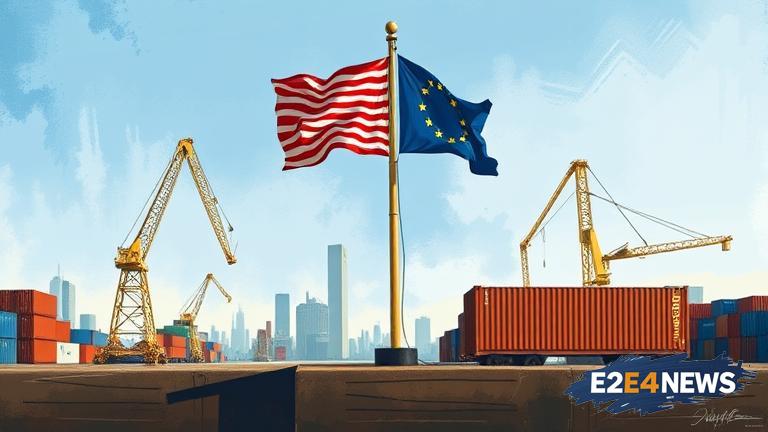The European Union and the United States have been engaged in negotiations to reach a tariff deal, which has been ongoing for several months. The stakes are high, with the potential for significant economic implications if an agreement is not reached. The current trading partnership between the two entities has been a cornerstone of global trade, with the EU being one of the largest trading partners of the US. However, the relationship has been strained in recent years due to disagreements over trade policies and tariffs. The US has imposed tariffs on several EU goods, including steel and aluminum, which has led to retaliatory measures from the EU. The situation has been further complicated by the ongoing COVID-19 pandemic, which has disrupted global supply chains and exacerbated trade tensions. If a tariff deal is not reached, it could lead to a significant escalation of trade tensions between the two entities, resulting in higher tariffs and reduced trade volumes. This could have a devastating impact on several industries, including the automotive and agricultural sectors. The EU has warned that it will impose retaliatory tariffs on US goods if an agreement is not reached, which could lead to a trade war. The US has also threatened to impose additional tariffs on EU goods, including cars and car parts. The situation is being closely watched by businesses and investors, who are eager to see a resolution to the trade dispute. The EU and US have a long history of cooperation on trade issues, and a failure to reach a deal could have significant implications for the global trading system. The World Trade Organization (WTO) has urged the two entities to reach a deal, citing the potential for significant economic damage if a trade war were to erupt. The EU and US have been working to reach a deal, with several rounds of negotiations having taken place in recent months. However, significant differences remain, and it is unclear whether a deal can be reached before the deadline. The economic implications of a trade war between the EU and US would be significant, with the potential for reduced economic growth, higher unemployment, and reduced trade volumes. The situation is being closely monitored by policymakers and businesses, who are eager to see a resolution to the trade dispute. The EU and US must work together to reach a deal, which would require significant compromises from both sides. The outcome of the negotiations is uncertain, but one thing is clear: the stakes are high, and the potential consequences of a trade war would be significant.
